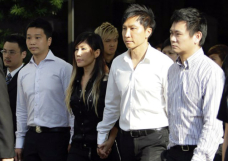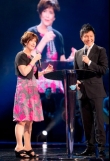The pastor of one of the largest churches in Asia has hit back at claims that he is living a life of luxury while facing charges of fraud committed against the church.
Kong Hee, pastor Singapore's City Harvest Church, was the subject of a Straits Times article purporting to describe the interior of a penthouse where he and his family live and which is currently for sale at an asking price of 10 million Singapore dollars (£4.7 million). Kong co-owns the property with an Indonesian businessman, Wahju Hanafi.
The article cites an anonymous "investor" who was shown round the property. It quotes the investor as saying: "The agent tried to persuade me to make an offer and sweetened the deal by saying that if I buy the penthouse, the owner would take me out to sea on his yacht."
The investor said: "The home is decorated with quality furniture and top of the range equipment. It gives me the impression that the owner sure knows how to enjoy the high life."
However, Kong said in a statement on Facebook and on the church's website that the coverage was "misleading and exaggerated". He said that the apartment was only a "temporary home" for him and his family and that they were "honoured and blessed" to stay there. He denied that they were living a "luxurious life" and said that he had never possessed a yacht.
Kong, who founded the City Harvest Church in 1989 with his his wife Sun Ho, is on trial with five other church members accused of misusing 50 million Singapore dollars (£23,800,000) of church funds to boost Sun Ho's music career. They have strenuously denied the allegations, saying that all the money raised through a bond scheme was repaid and that the church had lost nothing.
They argue that a music ministry was a legitimate way of helping to spread the gospel among unchurched people – a strategy common in Western churches but far less familiar in the East. The trial, which has lasted for two years, has been adjourned until September when closing submissions will be heard.















